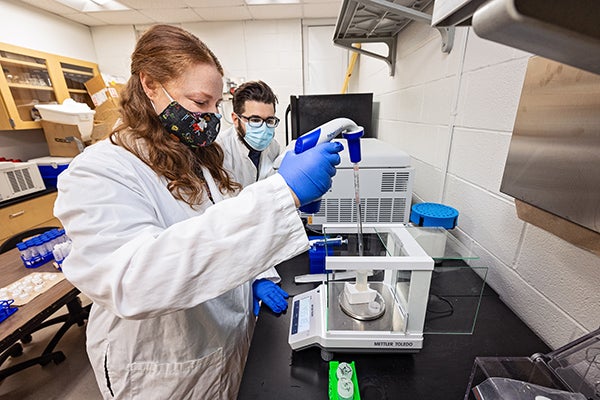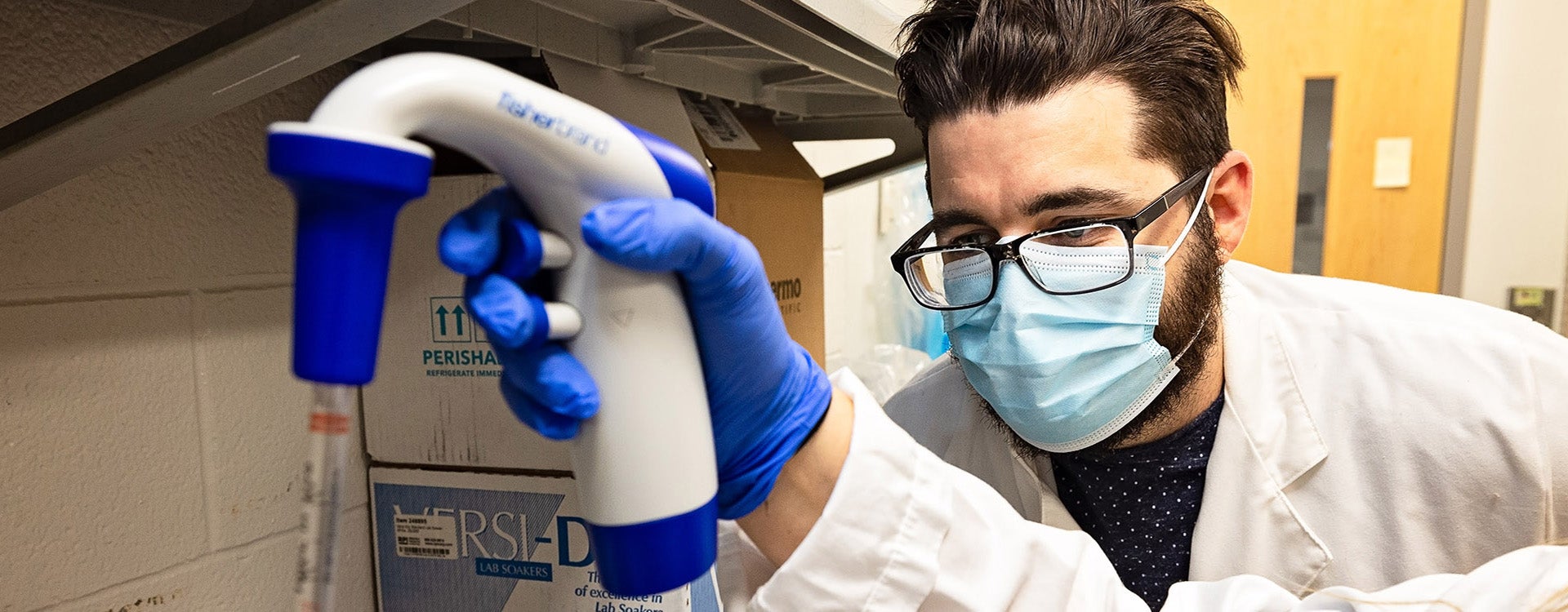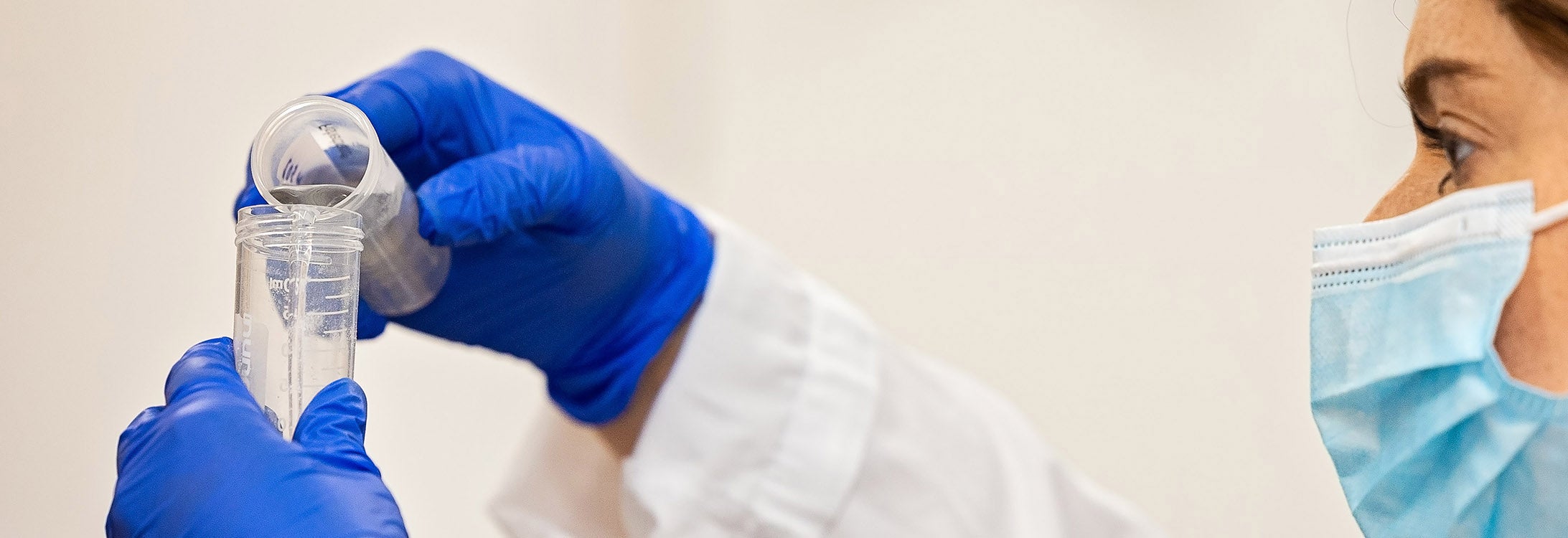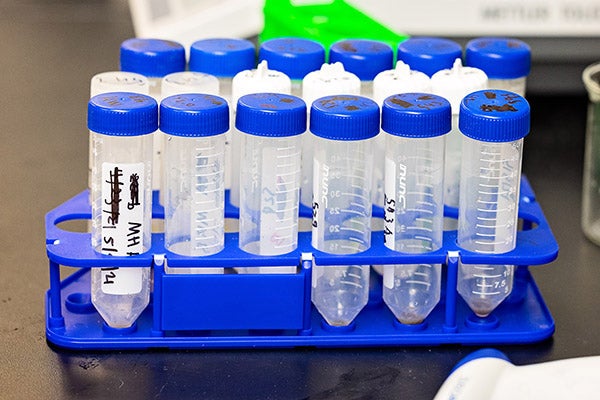EARLY DETECTION
Wastewater testing helped identify COVID-19 cases, prevent outbreaks
East Carolina University’s successful wastewater testing program for COVID-19 has paused for the summer but will start again when students return to campus in August.
“The wastewater program was an important part of our surveillance plan for the spring of 2021. It helped us to have early detection of COVID, thus preventing large outbreaks,” said Dr. LaNika Wright, director of ECU Student Health Services.
Because the virus is shed in feces days before symptoms can appear, wastewater testing can detect COVID-19 before people know they’re sick.
Wastewater samples from residence halls were collected, processed and analyzed every Monday, Wednesday and Friday — about 650 tests over the spring semester.
Visit this video on YouTube for closed-captioning.
Sampling can’t identify specific individuals or floors, but any positive results led to quick follow-up testing by Student Health Services. Students were isolated or quarantined when necessary. According to the university’s coronavirus website, three clusters were identified at residence halls between January and April.
Surveillance testing supported ECU’s prevention measures that included single-occupancy rooms in residence halls on a de-densified campus, face masks, frequent handwashing and more — lessons learned from the 2020 fall semester when large outbreaks forced residence halls to close and classes to move online.

Graduate student Melissa Nolan, left, and Dr. Guy Iverson load a centrifuge with wastewater samples.
“The combination of wastewater and saliva testing was key to keeping the positivity rate down on campus for sure,” said Dr. Jay Fallon, whose lab in the Brody School of Medicine tested wastewater from the residence halls in addition to conducting hundreds of saliva tests each week.
The positivity rate for COVID-19 in the student population was 1-2% this spring while Pitt County’s rate reached up to 10%, Fallon said.
As ECU continues preparations for the fall semester, wastewater testing is expected to follow the same process as in the spring, with additional sampling as more residence halls are expected to open.
Facilities services staff will collect and transport samples from residence halls to the environmental health sciences lab in Belk building. There, Dr. Guy Iverson and graduate students will prepare the wastewater for analysis before it’s transferred to Fallon’s lab for final testing. Any positives will be reported to Student Health Services.
On May 5, the last collection day of the spring semester, graduate student Lauren Richardson pipetted wastewater into test tubes before placing them in a centrifuge. The students were processing 2-liter jugs of wastewater into a concentrated amount for analysis. “What usually leaves this lab is a milliliter or two,” Iverson said.
Richardson and Melissa Nolan said they gained valuable skills while working on the project.
“It’s been a really great experience,” said Nolan, a former science teacher originally from Detroit, who is earning a master’s degree in environmental health and safety. “No one can see an individual RNA particle. You can’t see that because it’s so tiny, so the degree of error is much more intense.”
Accuracy and precision were critical because the results affected so many people on campus, said Richardson of Johnson City, Tennessee, who is earning a master’s degree in geology. “It was a very different experience than all of us working on our own research projects,” she said.
Each participant in the process, from facility services to student health, relied on each other to get same day results.
“It gives the students a great opportunity for lab experience with tough expectations,” said Iverson, assistant professor of health education and promotion in the College of Health and Human Performance.
And the biggest outcome? “It’s helping people stay healthy,” Nolan said.
Related story:

Dr. Guy Iverson, assistant professor of health education and promotion, watches as a graduate student pipettes wastewater samples before placing them in a centrifuge.

